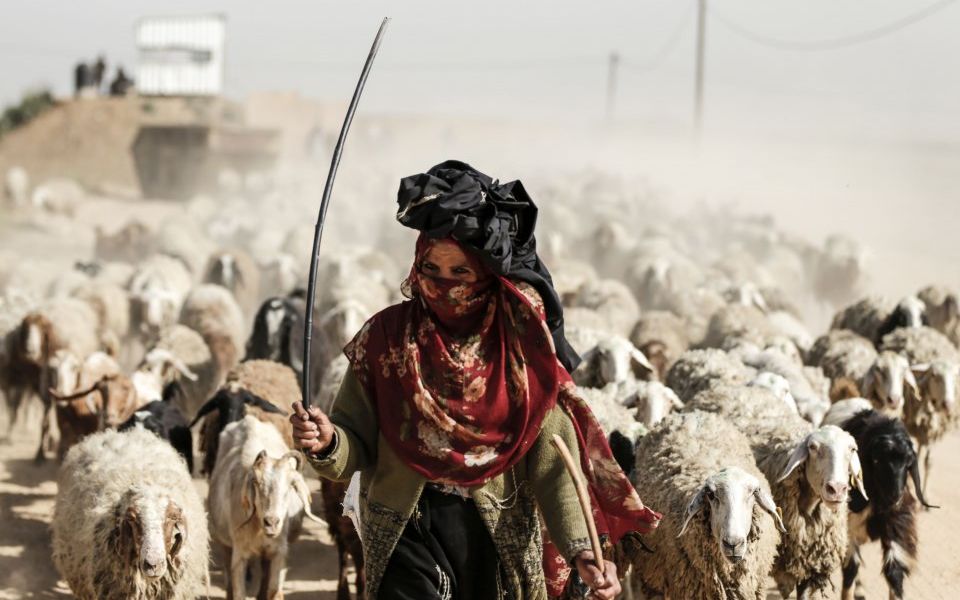Shear force of wool: How to get the herd to follow you

A few years ago, while studying for an MBA, I switched Boston for the Sahara. I swapped my clean bedroom for a wooden plank in the desert, and my fellow students for a herd of 111 stubborn sheep.
I learned a lot about leadership in classes during my MBA, as well as afterwards when I was running national transformational education programs in Saudi Arabia.
Yet, in the desert, I pursued an alternative, more authentic classroom experience.
It soon became clear that the ancient art of shepherding could teach us how to become successful leaders.
Lesson One: Value
In my very first minute with the flock, I tried asserting my authority out loud: “hello, I am your leader”.
The response? They turned their backs to me.
Each day I offered food and water, opened gates to let them pass, cleaned up their leftovers. Slowly, they allowed me to get close to them.
I realised that it was only when I served them, repeatedly, that they began to accept me.
It wasn’t about being a human, or having skills, or even being a leader – it was about bringing value to them.
So here is a question to ask yourself: what value do you bring to your organisation, and to the individuals in your team?
Lesson Two: Awareness
The herd’s flat-out rejection of me was not my only challenge.
I was totally isolated from the modern world. No internet, no electricity, no toilet. No people. Only snakes, fear, silence, and 50 degree celsius heat.
The desert is a place where you do not have the option to choose the way you live – you just live the way it is.
This teaches you to adapt and to lead, no matter the situation.
It also teaches you how to continue surviving and leading, no matter how fearful you are or how hard it is to adapt to change.
This requires you to build full awareness of your thoughts and emotions. This turned out to be absolutely key to my ability to continue leading.
Lesson Three: Trust
Finally, the day came when the sheep did not turn their back on me. But this wasn’t enough.
I needed the sheep to follow me, willingly and with confidence. I needed to guide them on the routes where they could find food in the desert, or they would die.
It is only with continuous commitment that the sheep start to take the path that you take, and to stop when you stop.
The sheep valuing me was one thing, but trust and having faith in the leader is another.
Trust is the keystone of every relationship. Without trust, it is only a matter of time until the relationship collapses. Do we trust the boss who assumes he has the solution for everything? Or the boss who treats people like machines, and only thinks of profit margin, process optimisation, or sales?
Reconsider these questions with John Maxwell’s statement in mind: “He who thinks he leads but has no followers is only taking a walk.”